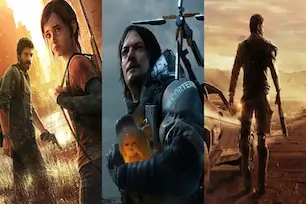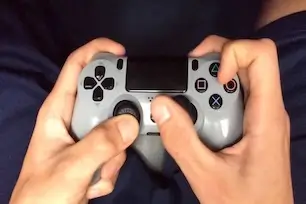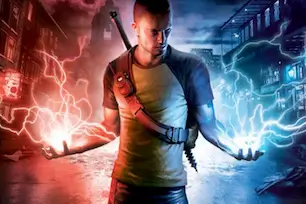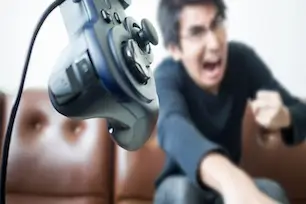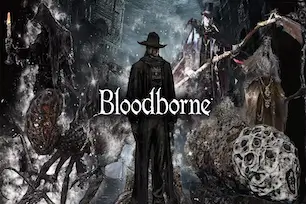Video games are a powerful medium that can influence societal norms and attitudes. Unfortunately, many titles feature sexist video games and racist stereotypes that significantly impact players' perceptions of gender and race.
Characters and plots often perpetuate harmful ideas, shaping the way individuals view themselves and others.
In this article, we will explore the presence of sexist and racist video games, examining their effects on players, as well as how stereotypes in games contribute to broader social issues.
- Sexist and racist video games can shape how players perceive gender, race, and identity.
- Titles like GTA V, Call of Juarez, and Resident Evil 5 reflect ongoing issues with harmful stereotypes.
- Media psychology research shows repeated exposure to biased portrayals can affect player behavior and beliefs.
- Online multiplayer spaces often reinforce racism and harassment, especially among younger players.
- Games can address serious topics, but developers must be mindful not to glorify or normalize negative tropes.
- Progress requires thoughtful design, diverse perspectives, and player accountability in shaping inclusive game culture.
By understanding these dynamics, we can advocate for a gaming culture that promotes equality and respect for all individuals.
The Table of Contents
How Stereotypes in Games Shape Our Views on Gender and Race
Some people believe that video games are more helpful than harmful. Some games promote negative stereotypes, which can cause long-lasting effects.
Sexist Video Games in Focus: GTA V as a Flawed Masterpiece
One prime example is Grand Theft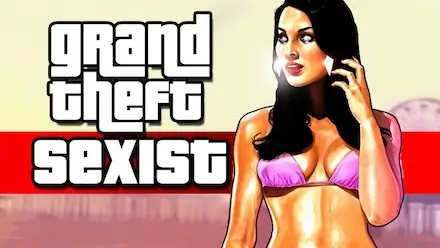 Auto V, which I like to call a "flawed masterpiece."
Auto V, which I like to call a "flawed masterpiece."
While the game receives praise for its gameplay and storytelling, its brilliance is often overshadowed by widespread sexism and negative portrayals of women.
“During my 55-hour playthrough of Grand Theft Auto V, I was constantly torn between awe and frustration. The world Rockstar created is incredible—funny, immersive, and often brilliant.
But its treatment of women felt stuck in a locker-room mentality from a decade earlier. The game delivers satire and nuance in so many areas, yet resorts to lazy stereotypes when it comes to gender. That disconnect cheapens what could have been a more thoughtful masterpiece.”
-- Brandon Perton, founder of The Old School Game Vault
Female characters are often given minor roles. They are shown mainly as sexual objects or victims.
This can support harmful stereotypes in the minds of players, especially younger ones. This can create a biased view of women's roles in society and strengthen old gender norms found in games with sexist portrayals.
Racist Video Games and Cultural Caricatures: Call of Juarez as a Case Study
Similarly, Call of Juarez: The Cartel exemplifies blatant racism in gaming. The game has been widely criticized for its offensive portrayals of racial and cultural groups. As TopTenz puts it:
“Call of Juarez: The Cartel isn't just a bad game—it’s borderline offensive, riddled with stereotypes about Mexicans, African Americans, and drug culture."
Media Psychology: When Racist Video Games Create Real-World Harm
Racist video games and discriminatory multiplayer environments aren’t just problematic—they can have real psychological consequences, especially for younger players.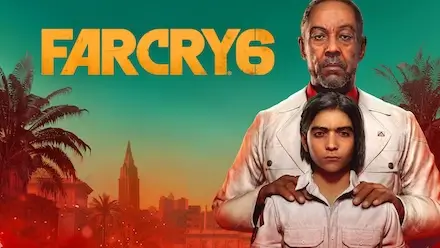
- Research in media psychology indicates that when players encounter racial and gender stereotypes in video games, it can influence their self-perception and their views of others.
- When players, especially adolescents, see marginalized characters repeatedly portrayed as criminals, caricatures, or sidekicks, it can normalize those stereotypes in real life.
But the problem doesn’t stop with single-player narratives. Online multiplayer games are now a major source of unchecked racism, harassment, and extremism.
In a 2023 USA Today investigation, Dr. Amanda Calhoun, a child psychiatrist at Yale University’s Child Study Center, explained:
“You’re playing the game to have fun, not to see racist slurs.”
The article highlights that 2 out of 3 players aged 10 to 17 report experiencing harassment in online games. Racism has a big effect on mental health. Young people who face racism often feel shame, isolation, and may even think about suicide.
According to sociologist Stephanie Ortiz, “This frequency of overt racism is unseen since Jim Crow.”
This is more than just toxic chat—it’s a system-level issue. The Anti-Defamation League reports that Black and Asian American players face more targeting than others. Some children now choose not to speak in games or hide who they are to escape abuse.
As platforms grow and anonymity increases, so does the risk. When players get used to hate in games, they may start to bring those feelings into their real lives. This can lead to bias and negative attitudes that go beyond the gaming world.
Are All Controversies Over Racist Video Games Justified?
Some controversies surrounding games may be overstated or misunderstood.
Resident Evil 5: Racist Video Game or Misunderstood Narrative?
Take Resident Evil 5, for example, which faced significant backlash for its portrayal of zombie hordes as African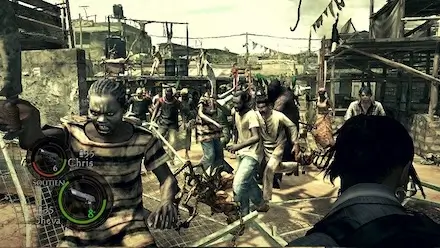 villagers.
villagers.
Critics have condemned this portrayal as racially insensitive, often overlooking the context of earlier games in the franchise that utilized varied cultural backgrounds.
The intention behind the game's design is important to consider. Is the portrayal genuinely racist, or is it a narrative choice that serves a larger purpose in the story?
Sexism and Racial Bias in GTA V: Franklin’s Storyline Revisited
When talking about representation, it's important to look at how police are shown in Grand Theft Auto V. Some players think that the game's police show racial bias against characters like Franklin.
How Player Interpretation Shapes the Narrative
Rockstar has denied this claim. However, the way players think about it shows that the game builds a detailed world that can show complex social issues.
This invites discussions about how video games can mirror societal tensions, prompting players to reflect on real-world conflicts. By considering diverse gaming perspectives, players can better understand the implications of these portrayals and their impact on society.
This brings us to an important question: How can we differentiate between genuine criticism and misconceptions in the portrayal of social issues like racism and sexism in video games?
How Sexist and Racist Video Games Can Reinforce Harmful Norms
Depicting issues such as racism and sexism in video games is not inherently problematic. In fact, many successful games use these themes to spark important conversations and challenge social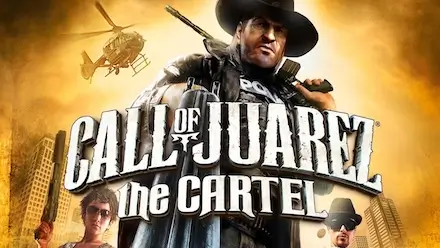 norms.
norms.
There is a crucial distinction between glorifying negative behaviors and critiquing them.
Video games can highlight important societal issues, but they should avoid reinforcing the harmful gender stereotypes often found in gaming.
Effective storytelling in video games can challenge these stereotypes and provide a more nuanced perspective, allowing players to engage with complex social issues.
When Representation Backfires: The Victim Trap
It's important to understand that even good-intentioned portrayals can lead to unintended outcomes. Designers might not fully realize when a depiction of sexism or racism crosses a line into harmful territory.
A game that features a character battling sexist norms might unintentionally strengthen these stereotypes if the character is portrayed only as a victim.
Stereotypes in Games: Critique or Endorsement?
Similarly, players may misinterpret a critique of discriminatory behavior as an endorsement of those very attitudes. This chance for misunderstanding can lead to problems.
The Role of Community Discussion in Accountability
How games show things can affect how people think, especially younger players. These players are still shaping their views about the world. Additionally, how the gaming community reacts to these portrayals is important, as it can either strengthen or challenge these issues.
When games that show racist or sexist ideas are praised or not criticized, it suggests that these portrayals are okay. On the other hand, when players discuss and critique games, it can create a culture of responsibility. This can lead to more careful and thoughtful designs in future games.
Addressing Harmful Stereotypes in Games Through Better Design
Despite these challenges, we have the power to push for meaningful change in the gaming industry. Advocating for gender equality and diversity in video games can reshape societal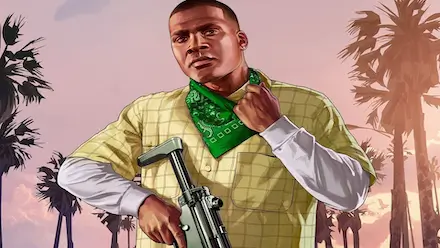 perceptions.
perceptions.
Moving Beyond Tokenism: Building Complex Characters
The gaming community should encourage developers to create more complex characters, moving away from reductive stereotypes commonly found in sexist video games.
By asking for fair depictions of gender, race, and identity, we help developers see how their stories impact players and society.
Game Mechanics that Support Social Responsibility
Integrating karma systems that react to players' actions can encourage accountability, motivating developers to design storylines that address the outcomes of player decisions concerning social matters.
Player Support for Diversity: Dollars and Dialogue
It is vital for players to engage in critical reflection about their gaming preferences. Supporting games that show different identities in thoughtful ways sends a clear message to developers. It also creates a space that values diversity and complexity.
Understanding the implications of objectification can help us establish boundaries and draw a line between escapism and unhealthy portrayals.
Additionally, it is essential to support organizations and initiatives that promote diversity in game development. When we support programs that help less-recognized voices in game design and storytelling, we create chances for future creators. These new voices can bring different viewpoints and question old stories.
Players can hold developers accountable by using their buying choices. They should support games that focus on good storytelling and strong characters.
Conclusion: Let’s Build a Future Beyond Sexist and Racist Video Games
In conclusion, confronting sexism and racism in video games is essential for fostering a more inclusive gaming culture. By addressing negative stereotypes and promoting diverse narratives, we can work towards a future where every player feels represented.
Together, we can create a gaming world that values respect, equality, and inclusion for everyone.
Also, don’t be a dick in multiplayer chat. Even if you’re thirteen, but especially if you’re playing with thirteen-year-olds who don’t need the encouragement.
FAQ: How Sexism and Racism Appear in Video Games
How do video games portray sexism?
- Objectifies or oversexualizes female characters
- Reduces women to passive roles (e.g., damsels, background characters)

- Reinforces outdated gender stereotypes without critique
What are some examples of racist video games?
- Ghost Recon Wildlands — Portrays Bolivia as lawless and drug-infested, prompting backlash from the Bolivian government.
- Shadow of the Tomb Raider — Uses a "white savior" narrative with superficial treatment of Indigenous cultures.
- Far Cry 6 — Set in a fictional Latin American country, it borrows cultural themes while glossing over deeper social and political issues.
How do stereotypes in games affect players?
- Repeated exposure to stereotypes about race, gender, or culture in games can normalize those ideas. This may reinforce harmful beliefs about marginalized groups.
- Media psychology research shows that such portrayals influence how players—especially young ones—view others and form self-identity.
Are developers responsible for racism and sexism in video games?
- Game developers have a significant influence on cultural storytelling. While creative freedom is key, modern audiences expect more accountability.
- Players are calling on studios to create respectful, authentic, and inclusive content that reflects diverse perspectives and avoids reinforcing harmful tropes.
🎮 Rethink. Reflect. Resell.
Played a game that didn’t age well? Or maybe you’re just ready to clear out some shelf space?
At The Old School Game Vault, we make it easy to turn your used PlayStation 3 games into cash, without the hassle. Whether it’s a flawed favorite or a title that doesn’t fit your collection anymore, we help you pass it on and get paid.
✅ Fast quotes
✅ Great trade-in prices
✅ No stress, no listing, no waiting
Make room for games that deserve the space—trade in your old games today.




